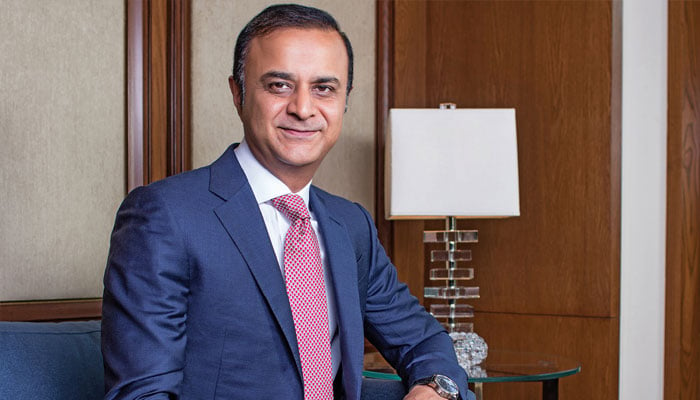Industry leader warns tariff cuts could undermine local auto sector
LAHORE: Muhammad Ali Tabba, chairperson of Lucky Motor Corporation (LMC), has expressed serious concerns over the government’s proposed Tariff Rationalisation Plan, particularly the planned reduction of duties on completely built-up (CBU) vehicles to 15 per cent over the next five years.
In a meeting with Finance Minister Muhammad Aurangzeb and Special Assistant to the Prime Minister (SAPM) on Industries and Production Haroon Akhtar, Tabba cautioned that while the policy may aim to make vehicles more affordable for consumers, its implementation without careful planning could jeopardise the local automotive sector, dent investor confidence and contribute to a widening current account deficit.
He noted that under the Auto Development Policy (ADP) 2016-2021, international automakers from Korea, Europe and China had collectively invested around $1.2 billion to establish local manufacturing operations. The policy led to broader consumer choice, increased competition, and significant job creation across vehicle assembly and auto parts production.
While supporting the principle of tariff rationalisation, Tabba underscored the importance of maintaining a significant duty differential between CBU and completely knocked-down (CKD) imports to protect domestic manufacturing. He recommended that the government convene consultations with key industry stakeholders to determine an appropriate structure.
Tabba also raised objections to the proposed liberalisation of used car imports, saying that the local auto industry now produces and sells approximately 150,000 units annually, with around 16 brands operating in Pakistan -- providing far greater variety than in the past. In this context, he argued, there is little justification for opening the market to second-hand imports.
He warned that allowing the commercial import of used vehicles could turn Pakistan into a “junkyard” of obsolete cars and would undermine the country’s efforts to modernise its automotive sector.
Given Pakistan’s fiscal constraints and limited foreign exchange reserves, Tabba concluded that a liberalised import regime would be unsustainable, potentially triggering a drawdown in foreign reserves, a widening current account deficit, and further pressure on the rupee.
In response, the SAPM assured Tabba that the government would consider industry input carefully and conduct consultations with all stakeholders before finalising decisions on tariff rationalisation and used vehicle import policies.
-
 King Charles Speaks Out Over Andrew's Scandal: 'Stand Ready To Help Police'
King Charles Speaks Out Over Andrew's Scandal: 'Stand Ready To Help Police' -
 Dax Shepard Recalls Horrifying Accident That Almost Killed Him
Dax Shepard Recalls Horrifying Accident That Almost Killed Him -
 Logan Paul's Bodyguard Hits Fan On Super Bowl Day
Logan Paul's Bodyguard Hits Fan On Super Bowl Day -
 Epstein Files: Anne Hathaway Mentioned As Highly Desired Guest For Bill Gates?
Epstein Files: Anne Hathaway Mentioned As Highly Desired Guest For Bill Gates? -
 Prince Harry Under A Lot Of Stress As Meghan Markle Makes Bizarre Demands
Prince Harry Under A Lot Of Stress As Meghan Markle Makes Bizarre Demands -
 Princess Beatrice, Eugenie's Subtle Break From Disgraced Parents Exposed
Princess Beatrice, Eugenie's Subtle Break From Disgraced Parents Exposed -
 Baby Left In Running Bathtub Dies After Father ‘forgets’ Him
Baby Left In Running Bathtub Dies After Father ‘forgets’ Him -
 King Charles Takes A Major Step To Keep Horrified Prince William Out Of The Loop On Andrew: Insider
King Charles Takes A Major Step To Keep Horrified Prince William Out Of The Loop On Andrew: Insider -
 Taylor Swift Set To Make Biggest Cut From Her Wedding Guest: Blake Lively Or Ryan Reynolds
Taylor Swift Set To Make Biggest Cut From Her Wedding Guest: Blake Lively Or Ryan Reynolds -
 Prince William Meets Saudi Crown Prince Mohammed Bin Salman
Prince William Meets Saudi Crown Prince Mohammed Bin Salman -
 Brooklyn Beckham Brutally Cuts Off Inner Circle Amid Feud With David, Victoria
Brooklyn Beckham Brutally Cuts Off Inner Circle Amid Feud With David, Victoria -
 Kaley Cuoco Reveals Why Fiance Tom Pelphrey Sleeps In Seperate Room
Kaley Cuoco Reveals Why Fiance Tom Pelphrey Sleeps In Seperate Room -
 Ghislaine Maxwell Will Not Answer Congress Questions On Epstein
Ghislaine Maxwell Will Not Answer Congress Questions On Epstein -
 Kensington Palace Announces Prince William's Arrival In Saudi Arabia
Kensington Palace Announces Prince William's Arrival In Saudi Arabia -
 ‘Andrew Crisis Follows King Charles Everywhere Now’
‘Andrew Crisis Follows King Charles Everywhere Now’ -
 Jennifer Aniston Already Decided Her Wedding Dress?
Jennifer Aniston Already Decided Her Wedding Dress?




